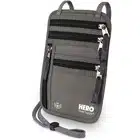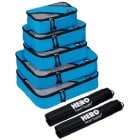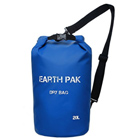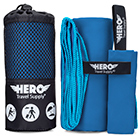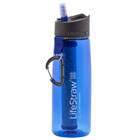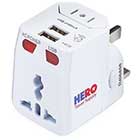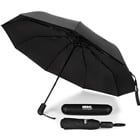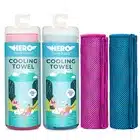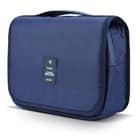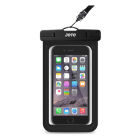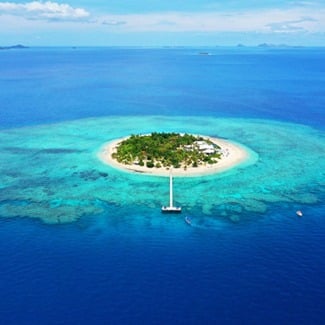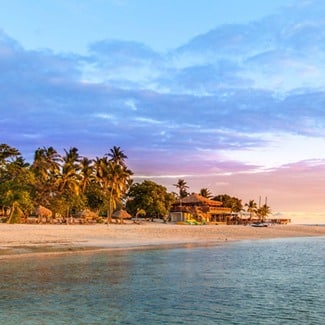Nightlife: Smart sundress or smart-casual resort attire, nice shoes
Keep in mind that the dress code in Fiji is conservative. Keep the swimwear, short shorts and sleeveless tops to the resort and beach. In town, and at night, wear skirts or dresses that fall below the knees when seated. Men can wear a sulu, long trousers or dress shorts. Footwear can include sandals or thongs. Do not go barefoot or wear a sleeveless top, ripped apparel, swimwear or sports attire or a hat.
Water Sports: Quick-drying clothes, lightweight fabrics, water shoes
You’ll likely be in the water a lot on your Fiji vacation, so be sure to pack swimwear (at least one swimsuit that is functional, as opposed to just cute), a rash guard, sunhat for the beach, water shoes and a beach coverup.
Hiking: Quick-drying hiking pants and top, hiking shoes or boots
You’ll be most comfortable on your hikes in Fiji if you’re wearing leggings or athletic-style shorts, a long-sleeved lightweight shirt (to protect from the sun), a sunhat and sturdy hiking shoes or boots. Many of the trails can be muddy, so you may want a dedicated pair of hiking footwear in addition to other sneakers you might pack. Stick to quick-drying, non-cotton clothing that will wick sweat and keep you cool in the equatorial heat.




